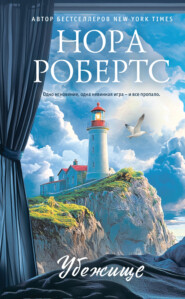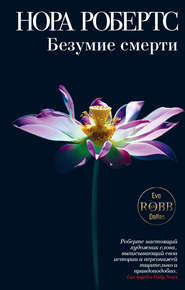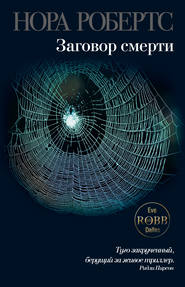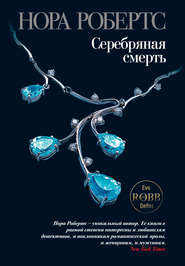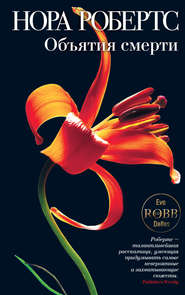По всем вопросам обращайтесь на: info@litportal.ru
(©) 2003-2025.
✖
Mind Over Matter: the classic story from the queen of romance that you won’t be able to put down
Автор
Год написания книги
2019
Настройки чтения
Размер шрифта
Высота строк
Поля
A shutter seemed to come down over her eyes. “No.”
Again he found her puzzling. The Van Camp case was the one that had brought her prominently into the public eye. He would have thought she would have been anxious to speak of it, elaborate, yet she seemed to close down at the mention of the name. David blew out smoke and noticed that the cat was watching him with bored but steady eyes. “Clarissa, the Van Camp case is ten years old, but it’s still one of the most celebrated and controversial of your successes.”
“That’s true. Matthew is twenty now. A very handsome young man.”
“There are some who believe he’d be dead if Mrs. Van Camp hadn’t fought both her husband and the police to have you brought in on the kidnapping.”
“And there are some who believe the entire thing was staged for publicity,” she said so calmly as she sipped from her cup. “Alice Van Camp’s next movie was quite a box-office success. Did you see the film? It was wonderful.”
He wasn’t a man to be eased off-track when he’d already decided on a destination. “Clarissa, if you agree to be part of this documentary, I’d like you to talk about the Van Camp case.”
She frowned a bit, pouted almost, as she petted her cat. “I don’t know if I can help you there, David. It was a very traumatic experience for the Van Camps, very traumatic. Bringing it all up again could be painful for them.”
He hadn’t reached his level of success without knowing how and when to negotiate. “If the Van Camps agreed?”
“Oh, then that’s entirely different.” While she considered, the cat stirred in her lap, then began to purr loudly. “Yes, entirely different. You know, David, I admire your work. I saw your documentary on child abuse. It was gripping and very upsetting.”
“It was meant to be.”
“Yes, exactly.” She could have told him a great deal of the world was upsetting, but didn’t think he was ready to understand how she knew, and how she dealt with it. “What is it you’re looking for with this?”
“A good show.” When she smiled he was sure he’d been right not to try to con her. “One that’ll make people think and question.”
“Will you?”
He tapped out his cigarette. “I produce. How much I question I suppose depends on you.”
It seemed like not only the proper answer, but the truest one. “I like you, David. I think I’d like to help you.”
“I’m glad to hear that. You’ll want to look over the contract and—”
“No.” She cut him off as he reached for his briefcase. “Details.” She explained them away with a gesture of her hand. “I let my agent bother with those things.”
“Fine.” He’d feel more comfortable discussing terms with an agent. “I’ll send them over if you give me a name.”
“The Fields Agency in Los Angeles.”
She’d surprised him again. The comfortable auntlike lady had one of the most influential and prestigious agencies on the Coast. “I’ll have them sent over this afternoon. I’d enjoy working with you, Clarissa.”
“May I see your palm?”
Every time he thought he had her cataloged, she shifted on him. Still, humoring her was easy. David offered his hand. “Am I going to take an ocean voyage?”
She was neither amused nor offended. Though she took his hand, palm up, she barely glanced at it. Instead she studied him with eyes that seemed abruptly cool. She saw a man in his early thirties, attractive in a dark, almost brooding way despite the well-styled black hair and casually elegant clothes. The bones in his face were strong, angular enough to warrant a second glance. His brows were thick, as black as his hair, and dominated surprisingly quiet eyes. Or their cool, pale green appeared quiet at first glance. She saw a mouth that was firm, full enough to gain a woman’s attention. The hand in hers was wide, long fingered, artistic. It vied with a rangy, athletic build. But she saw beyond that.
“You’re a very strong man, physically, emotionally, intellectually.”
“Thank you.”
“Oh, I don’t flatter, David.” It was a gentle, almost maternal reproof. “You haven’t yet learned how to temper this strength with tenderness in your relationships. I suppose that’s why you’ve never married.”
She had his attention now, reluctantly. But he wasn’t wearing a ring, he reminded himself. And anyone who cared to find out about his marital status had only to make a few inquiries. “The standard response is I’ve never met the right woman.”
“In this case it’s perfectly true. You need to find someone every bit as strong as you are. You will, sooner than you think. It won’t be easy, of course, and it will only work between you if you both remember the tenderness I just spoke of.”
“So I’m going to meet the right woman, marry and live happily ever after?”
“I don’t tell the future, ever.” Her expression changed again, becoming placid. “And I only read palms of people who interest me. Shall I tell you what my intuition tells me, David?”
“Please.”
“That you and I are going to have an interesting and long-term relationship.” She patted his hand before she released it. “I’m going to enjoy that.”
“So am I.” He rose. “I’ll see you again, Clarissa.”
“Yes. Yes, of course.” She rose and nudged the cat onto the floor. “Run along now, Mordred.”
“Mordred?” David repeated as the cat jumped up to settle himself on the sagging sofa cushion.
“Such a sad figure in folklore,” Clarissa explained. “I always felt he got a bad deal. After all, we can’t escape our destiny, can we?”
For the second time David felt her cool, oddly intimate gaze on him. “I suppose not,” he murmured, and let her lead him to the door.
“I’ve so enjoyed our chat, David. Please come back again.”
David stepped out into the warm spring air and wondered why he felt certain he would.
“Of course he’s an excellent producer, Abe. I’m just not sure he’s right for Clarissa.”
A. J. Fields paced around her office in the long, fluid gait that always masked an overflow of nervous energy. She stopped to straighten a picture that was slightly tilted before she turned back to her associate. Abe Ebbitt was sitting with his hands folded on his round belly, as was his habit. He didn’t bother to push back the glasses that had fallen down his nose. He watched A.J. patiently before he reached up to scratch one of the two clumps of hair on either side of his head.
“A.J., the offer is very generous.”
“She doesn’t need the money.”
His agent’s blood shivered at the phrase, but he continued to speak calmly. “The exposure.”
“Is it the right kind of exposure?”
“You’re too protective of Clarissa, A.J.”
“That’s what I’m here for,” she countered. Abruptly she stopped, and sat on the corner of her desk. When Abe saw her brows draw together, he fell silent. He might speak to her when she was in this mood, but she wouldn’t answer. He respected and admired her. Those were the reasons he, a veteran Hollywood agent, was working for the Fields Agency, instead of carving up the town on his own. He was old enough to be her father, and realized that a decade before their roles would have been reversed. The fact that he worked for her didn’t bother him in the least. The best, he was fond of saying, never minded answering to the best. A minute passed, then two.
“She’s made up her mind to do it,” A.J. muttered, but again Abe remained silent. “I just—” Have a feeling, she thought. She hated to use that phrase. “I just hope it isn’t a mistake. The wrong director, the wrong format, and she could be made to look like a fool. I won’t have that, Abe.”
“You’re not giving Clarissa enough credit. You know better than to let your emotions color a business deal, A.J.”
“Yeah, I know better.” That’s why she was the best. A.J. folded her arms and reminded herself of it. She’d learned at a very young age how to channel emotion. It had been more than necessary; it had been vital. When you grew up in a house where your widowed mother often forgot little details like the mortgage payment, you learned how to deal with business in a businesslike way or you went under. She was an agent because she enjoyed the wheeling and dealing. And because she was damn good at it. Her Century City office with its lofty view of Los Angeles was proof of just how good. Still, she hadn’t gotten there by making deals blindly.






